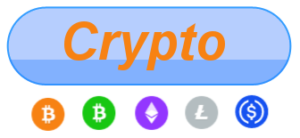RESEARCH
The Carboncopies Foundation is presently running a number of research projects, several of which are conducted in collaboration with external partners. Our international team conducts these research projects in a distributed manner. We are always open to new team members and external partners.
Summary
In 2008, Anders Sandberg and others published the landmark piece “Whole Brain Emulation: A Roadmap" describing current and speculative technology related to Whole Brain Emulation (WBE). This document was written to be a starting point for the scientific communities interested in pursuing whole brain emulation. Since then, the concept of WBE has become more widespread and even popularized in editorials like the Guardian and films like Transcendence. In addition, there have been significant advances in neuromorphic technology and other related fields that have further transformed the landscape of WBE to reflect a respected field of scientific inquiry rather than a science-fiction narrative.
After almost 10 years, it is the goal of our group to update the 2008 roadmap. We are tackling this task in two parts. The first will be a series of technical reviews of current technology. Since most of our volunteers are students at various levels of training, this first step in updating the roadmap will not only create a collection of interdisciplinary information related to WBE for interested readers, but will also provide volunteers with the knowledge and skills for engaging in the second phase, the roadmap. The roadmap will describe things like technological and scientific needs, prospects for development, and how these timelines impact the development of WBE.
Technical Review Series
The technical review series (TRS) will be individual, standalone encyclopedia-like entries available on the Carboncopies website that will be routinely updated by our volunteers. Each page will provide an overview of fields of research related to WBE like those seen in the 2008 roadmap (ie, scanning technology, computing resources), but will also include additional fields like neuromorphic hardware, computational brain models, and artificial intelligence. Unlike the original roadmap, these overviews are meant to be an unbiased introduction to these fields of research in the context of whole brain emulation and to provide an overview of the current research and technology. Our volunteers work together to develop outlines for these reviews and independently collect information on the current and past research projects to be included in the review.
Roadmap
The roadmap will be written after the completion the TRS and will provide a foundation for Carboncopies to assist with planning and coordination of technological developments in the coming decades. Unlike the technical review, this publication will include more opinion and assumption similar to the original roadmap. We will detail short and long term goals, subactivities, key problems and uncertainties, the minimal components of a successful finished project as well as crucial next steps and calls for research. It is our hope that this roadmap will be written with the input of researchers from around the globe who are interested in WBE and serve to develop the relationships for future collaboration.
Virtual Brain - A framework for guided neuromimetic prosthesis
The virtual brain framework aims to explore the optimization of electrophysiology, model selection and model fitting by carrying out simulated data acquisition and subsequent neuroprosthetic modeling for a range of generated artificial brain tissue samples (ground-truth neuronal networks). This project is carried out in collaboration with EBRAINS and CNR (Italy).
BrainGenix
The BrainGenix project aims to develop a distributed computational neuroscience platform that is designed to facilitate multi-scale modeling, for example, by combining generalized integrate-and-fire (IF) spiking neuron components with localized compartmental modeling and Hodgkin-Huxley channel dynamics in one direction, or combining with mean-field oscillation dynamics in the other direction. The purpose of this platform is to suit the needs of explorations in brain emulation where levels of scale separability are as yet open scientific questions.
Sub4SIM
The Sub4SIM (substrate for substrate-independent minds) project is studying probable directions in the development of software and hardware that meets the needs of increasingly capable clinical neuroprosthetics and ultimately real-time performance of whole human brain emulation. This includes a first iteration justification of a likely level for scale separation and corresponding implementation algorithms, as well as estimations of the necessary computational load, and possible efficiency gains through customized hardware (e.g. novel neuromorophic solutions matched to the most prevalent algorithms and data pathways likely to be needed).
Metaphysics
The Carboncopies Foundation purposely chooses to focus primarily on supporting the more technical scientific research and development towards whole brain emulation. Nevertheless, in order to fully engage with the possibilities, effects and implications of whole brain emulation many questions of a more metaphysical nature have to be addressed. The project began as an effort to provide an explicit description of whole brain emulation success criteria, for inclusion in the update of the roadmap. It now includes a comparative review of theories of consciousness, and an in-depth exploration of concepts such as personal identity.
The metaphysics project and a related series of workshops, journal clubs and internal discussions has also spawned a project on the ethical development of whole brain emulation, addressing issues such as universal involvement and access, and long-term beneficial outcomes for society and human culture. This track is still in the nascent stages of project initiation.


